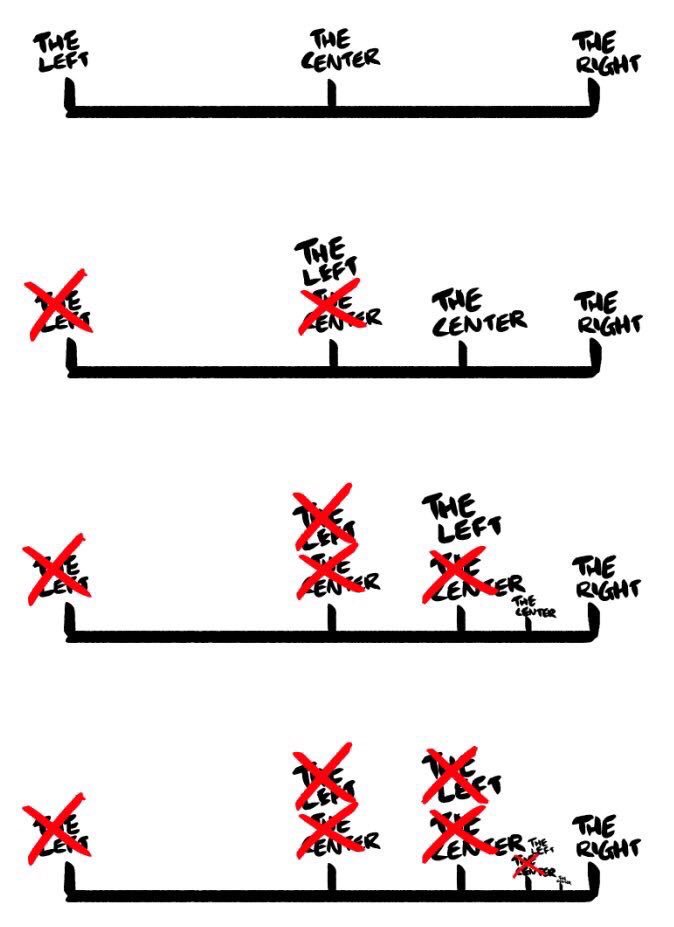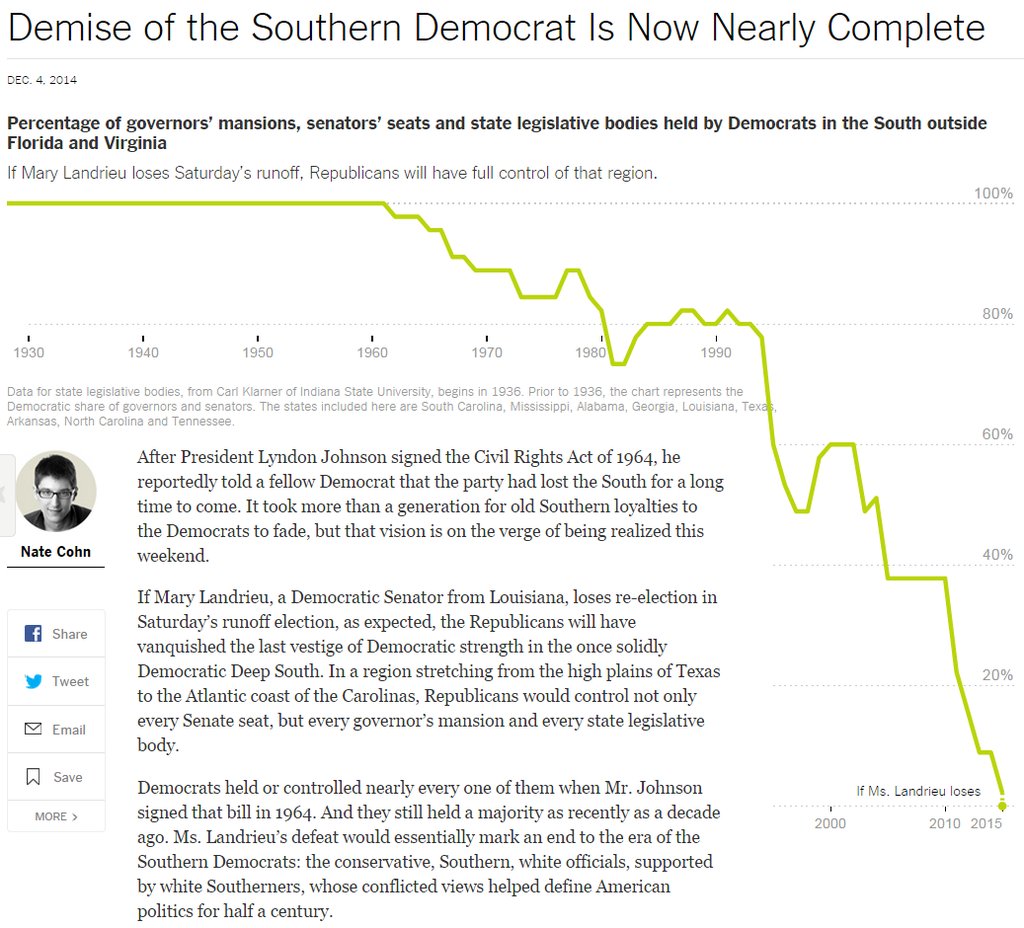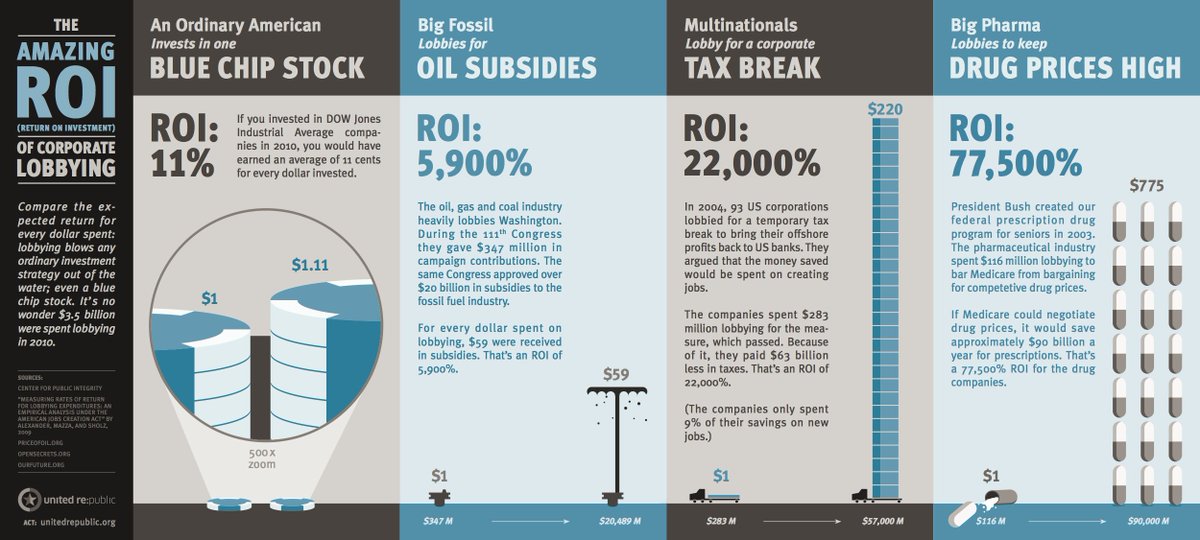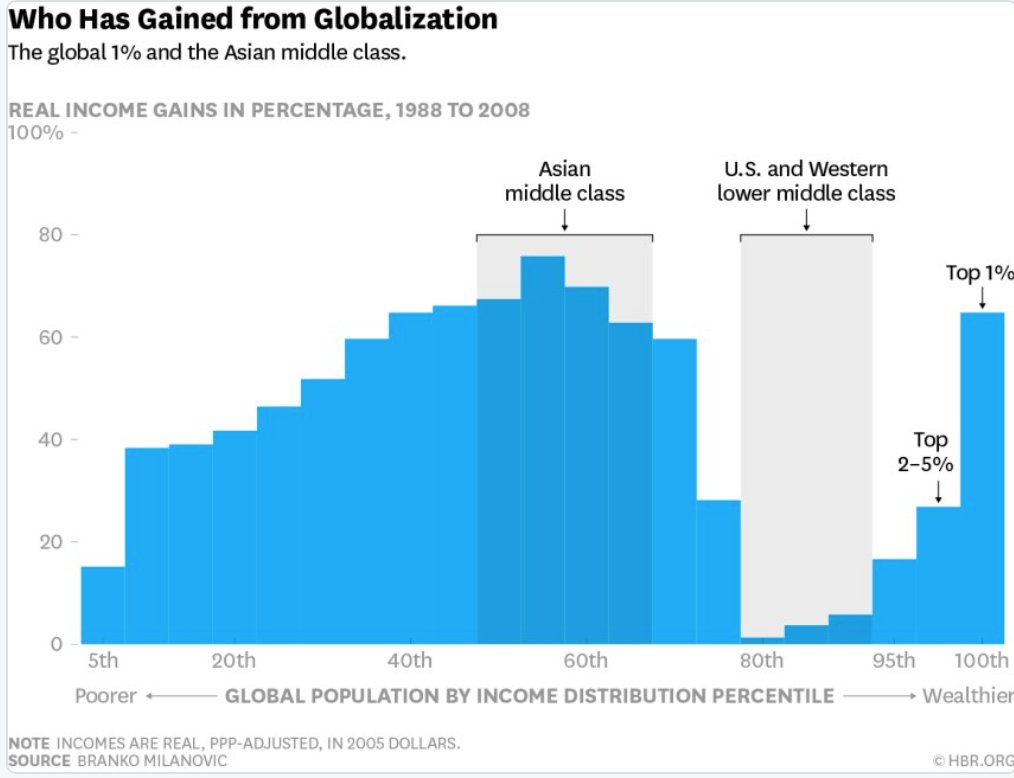allow me to explain:
first thing to realize is that compromise usually involved splitting the difference (e.g. arbitration -- if you've ever been privy, you know exactly what i mean).
next you need to understate that starting positions matter
first thing to realize is that compromise usually involved splitting the difference (e.g. arbitration -- if you've ever been privy, you know exactly what i mean).
next you need to understate that starting positions matter
now we come to the republicans..
they know to start out WAY to the right of anything sane
democrats, being slightly more reasonable tend to open with somthing they thing will win the other side over to their POV.
... it ... will ... not ....
so this happens.
they know to start out WAY to the right of anything sane
democrats, being slightly more reasonable tend to open with somthing they thing will win the other side over to their POV.
... it ... will ... not ....
so this happens.

after a few years of this (say since 1980) you end up with both parties being FAR to the right of anything that a rational person would consider CENTER
enter #bernie sanders and his populist, moderate policy positions like #medicareforall or raising the minimum wage
enter #bernie sanders and his populist, moderate policy positions like #medicareforall or raising the minimum wage

he's widely criticized by "both sides" as being some kind radial socialist loon when he's anything but and is widely seen as anything but, by the vast majority of citizens who are not caught up in the trap described above, or by partisan demagoguery.
so when you see ppl say "compromise is bad" this is most likely what they mean.
compromise has led us to where we are, ruled by neoliberal elite to haven't the foggiest idea what the average person is thinking or what they need.
oh, and #berniewouldhavewon
compromise has led us to where we are, ruled by neoliberal elite to haven't the foggiest idea what the average person is thinking or what they need.
oh, and #berniewouldhavewon
unroll
• • •
Missing some Tweet in this thread? You can try to
force a refresh







